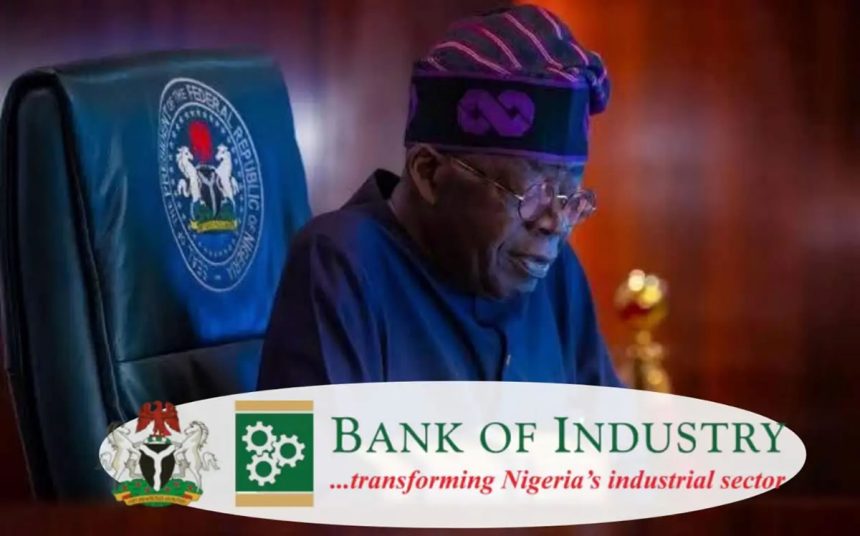Micro, Small, and Medium Enterprises (MSMEs) drive Nigeria’s economy. They make up most of the businesses around, including small tech startups, local fashion brands, agro-processing ventures, and logistics companies.
However, many MSMEs struggle to grow due to the lack of affordable financing and structured business loans.
This is where the Bank of Industry (BOI) comes in, one of the most important channels for MSMEs to access federal government grants and concessionary loans structured to make repayment possible. Entrepreneurs and small business owners who have already leveraged BOI consider it a business lifeline.
One of BOI’s financing drivers is the Federal Government’s MSME Intervention Fund, worth about ₦200 billion, with BOI as the main executing agency. ₦50 billion goes into the Presidential Conditional Grant Scheme, ₦75 billion into the Manufacturing Sector Fund, and another ₦75 billion into the MSME Intervention Sector Fund.
And only recently, there are reports of a phase two of the ₦50,000 presidential conditional grant, which will likely support one million beneficiaries, similar to the first phase of disbursement.
These funds are spread across the country and made accessible through direct disbursement or financial institutions working with BOI. A local agro-processing business in Kaduna can access the same intervention fund as a creative startup in Lagos.
BOI finance is different from the rest.
The reason here is that the FG is not just pushing money into the system randomly. BOI structures how small businesses access funds and how they are monitored. MSMEs benefit because loans and grants are collateral-friendly, and interest rates remain far lower than what commercial banks offer.
In many cases, interest rates are capped at 9 percent, with repayment periods of three years or more, depending on the scheme.
There is also a focus on youth and women.
Youth entrepreneurs and women are given special priority under BOI-managed programs. 70 percent of beneficiaries are targeted to be youths and women. Out of the total beneficiaries, 10 percent is reserved for persons with disabilities, 5 percent for senior citizens, and 15 percent for other groups. A female tech founder in Abuja or a young agripreneur in Kano has better chances of accessing BOI finance than through traditional banks.
Rural areas are not left behind on investment for development.
For instance, BOI launched the Rural Area Programme on Investment for Development (RAPID), a ₦3.7 billion initiative for rural entrepreneurs often excluded from mainstream financing. Under RAPID, loans of up to ₦10 million can be accessed at a 5 percent interest rate, with repayment over three years and a six-month moratorium.
While the loans are a priority, there are also BOI-organized MSME clinics for applicants.
BOI MSME clinics guide applicants through every pre-disbursement step, from documentation to understanding loan agreements. For example, a manufacturer approved for a loan must sign the offer letter, validate identification documents, and submit invoices for equipment.
These clinics have been confirmed to reduce delays caused by incomplete applications.
We have more recent cases of loan approvals that should encourage MSMEs to apply whenever BOI opportunities are open.
BOI recently approved about ₦2.9 billion in loans across 662 businesses. It was all over the news as of 3rd August 2025. ₦900 million has already been disbursed to 262 enterprises. Let’s say an applicant owns a tailoring business. The BOI loan could go into the purchase of sewing machines, and by extension the employment of dozens of new workers to boost the business.
Improved Loan Limits
The maximum loan limit under many FGN-BOI schemes has been increased to ₦5 million, up from ₦1 million. Micro, small, and medium enterprises (MSMEs) went up to ₦5 million.
Terms would typically include a 9 percent interest rate and a repayment period of three years or adjustable to the applicant’s preference. Compared with commercial banks charging 25 percent or more, the difference determines whether a business survives or fails.
Basic eligibility requirements:
To qualify, MSMEs must be registered with the Corporate Affairs Commission. The CAC number should be in the correct format (RC1234567 or BN1234567). The business name must match the CAC record.
Applicants must have a valid business email, physical business address, and active phone number.
Applicants must submit a letter of application on official letterhead, a completed online loan form, CAC certificate of incorporation, and in some cases, a memorandum and articles of association.
A business plan or feasibility study is required, showing the business profile, activities, sources of raw materials, and equipment needs.
Quotations for equipment are compulsory.
Promoters or directors must provide identification documents, BVN, and passport photographs.
Requirements for Existing Businesses
Existing businesses must provide at least one year of audited or management accounts and recent bank statements.
Some loans require collateral, while others allow guarantors. For example, a bakery under RAPID may only need a guarantor, while a larger manufacturing loan could require collateral.
Existing businesses must also declare outstanding liabilities and submit lease agreements if on rented premises.
Once approved, businesses must sign the offer letter, execute the loan agreement, provide a board resolution for corporate entities, submit tax clearance certificates, and ensure collateral or guarantor documents are in place.
Sector Specific Financing
BOI has sector-specific programs covering agro-processing, renewable energy, manufacturing, and creative industries. It also works with state governments under state matching funds. For example, in Lagos State, BOI co-funds small businesses with favorable conditions.
In the solar energy sector, MSMEs can access loans to buy equipment and deploy sustainable energy solutions across rural areas.
An agro-processing entrepreneur in Ogun State can apply for ₦10 million under RAPID at 5 percent interest to scale a cassava processing plant, employ workers, and expand distribution. A tech startup in Abuja can secure ₦5 million under a sector-specific program to fund software development and expand into new markets. A fashion business in Lagos can access a grant under the Presidential Conditional Grant Scheme to buy sewing machines and hire more workers.
More importantly, BOI offers support beyond money.
The Development Finance Institution (DFI) provides more than capital. It offers business planning support, financial management training, and capacity-building opportunities.
BOI reportedly on August 3 had even reaffirmed its commitment to strengthening MSMEs across Nigeria by facilitating access to the ₦75 billion FG intervention fund. This initiative, it declared, is expected to generate over 75,000 direct jobs and 150,000 indirect jobs nationwide. Each loan or grant contributes to employment generation and economic growth.
There are more than 39 million MSMEs contributing nearly 50% to Nigeria’s GDP and over 80% of employment. Therefore, BOI’s intervention fund is not just about disbursement but also about nurturing an MSME ecosystem that can drive Nigeria’s economic growth with resilience.
WATCH TOP VIDEOS FROM NIGERIAN TRIBUNE TV
- Let’s Talk About SELF-AWARENESS
- Is Your Confidence Mistaken for Pride? Let’s talk about it
- Is Etiquette About Perfection…Or Just Not Being Rude?
- Top Psychologist Reveal 3 Signs You’re Struggling With Imposter Syndrome
- Do You Pick Up Work-Related Calls at Midnight or Never? Let’s Talk About Boundaries







